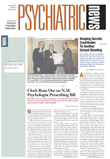The U.S. Food and Drug Administration has approved galantamine hydrobromide for the treatment of mild to moderate dementia associated with Alzheimer’s disease. The drug will be marketed in the U.S. by Janssen Pharmaceutica under the trade name Reminyl.
Galantamine, originally purified from the bulbs of the daffodil and now synthetically produced, is a reversible, competitive cholinesterase inhibitor. In addition, the new compound also stimulates the brain’s nicotinic receptors. Research has not yet shown, however, whether or not this effect, which is unique to galantamine, will prove to be beneficial.
“Patients with Alzheimer’s disease progressively deteriorate,” said Gary W. Small, M.D., director of the Center on Aging and professor of psychiatry and behavioral sciences at the University of California, Los Angeles. “But the studies do show that galantamine can benefit individuals with the disease.” Small, a member of APA’s Council on Aging, said at the recent meeting of the American Association for Geriatric Psychiatry that the drug’s efficacy has been demonstrated in studies lasting up to six months, with most patients’ symptoms being initially improved or stabilized. Even when patients taking the drug do start to decline, Small added, they do so at a slower rate than those in the studies who did not receive active medication.
In studies up to 26 weeks, patients’ abilities related to memory, orientation, reasoning, and language were evaluated using the Alzheimer’s Disease Assessment Scale, Cognitive Subscale (ADAS-cog), and the Clinician’s Interview Based Impression of Change plus Caregiver Information (CIBIC-plus). Patients taking galantamine showed consistently significant improvement in their cognitive performance compared with those taking placebo.
Galantamine should be available for prescribing by mid-May in 4 mg, 8 mg, and 12 mg tablets. Recommended dosing starts at 8 mg per day in divided doses, then increasing to 16 mg per day after at least four weeks.
The most common side effects seen with galantamine are nausea, vomiting, diarrhea, anorexia, and weight loss—all of which have been reported as common to the cholinesterase inhibitors in general and can be lessened by taking the medication with food.
During clinical trials, most side effects were associated with the increasing of a patient’s dose and moderated within five to seven days of initiating a higher dose. The number of people discontinuing treatment due to side effects was not statistically significantly different between galantamine and placebo.
Galantamine has been available in 21 other countries, including most European markets, for as long as four-and-a-half years.
A copy of complete prescribing information may be found on the Web at www.us.janssen.com, by clicking on “Products,” scrolling down and then clicking on “Reminyl”. ▪
